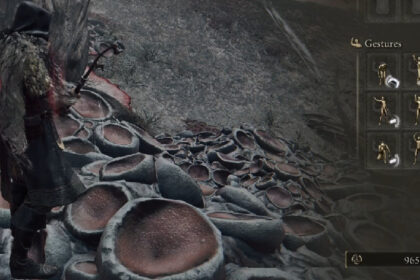Faith allows you to create many diverse builds in Elden Ring. Where previous games had Faith mainly as a supportive attribute, its current reiteration gives players a plethora of viable options.
Investing points in Faith lets you cast incantations, which is another type of magic in the game. Incantations are a mix of Miracles and Pyromancies from previous titles.
There are 101 incantations in Elden Ring, 31 more than the 70 sorcery spells. These include offensive spells, buffs, enhancements, restoration, and other miscellaneous utility incantations.
It is enticing to invest in Faith with all the flashy and functional incantations. But with a spell list so large, there’s bound to be some misses.
As someone who mainly stuck by Faith in every Dark Souls installment, I can shed some light on how good is Faith in Elden Ring. This guide will go through the general progression when leveling Faith while discussing some standout incantations (for better or for worse) to know the attribute’s advantages and disadvantages.
Elden Ring Faith Builds and Progression
Starting classes are only suggestions that guide you towards your desired build. Any class can move towards any build, depending on where you distributed your points during your playthrough.
There’s even an option to reset your character to its base level and respec your points elsewhere. Of course, you’ll need to give Lady Rennala one Larval Tear each time to undergo the process.

Players who want to begin a Faith oriented playthrough can choose between the Confessor or Prophet starting class. These classes start with a high Faith attribute, two incantations, and a catalyst to cast those spells.
At level 10, Confessor begins with the highest level out of all the starting classes and well-rounded stats. They start with a Broadsword and a shield; their sword is an excellent weapon for the early game. Additionally, their armor is worthy of their fashion, especially the hood and armor pieces.
Confessors have the Urgent Heal and Assassin’s Approach incantations. The former is good in the early game when your Flasks are still low, but you’ll quickly replace the latter.
Prophets have higher Faith and Arcane when compared to the alternative class. They start with a decent spear and a very light small shield.
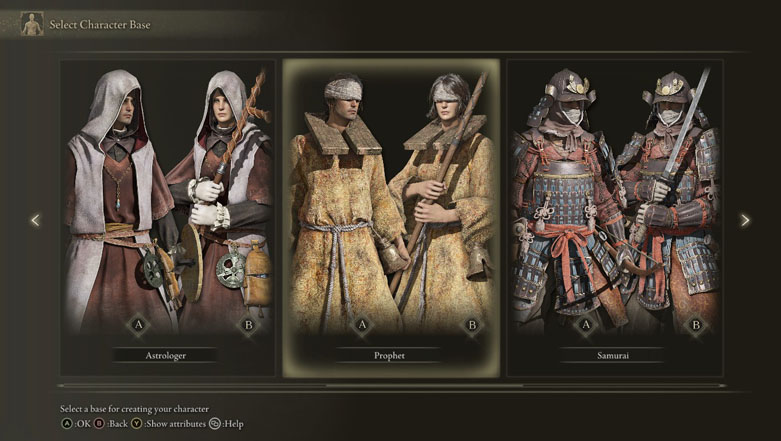
They start with Heal and Catch Flame incantations. Heal is an area-of-effect restoration spell that could heal allies and damage undead.
Catch Flame is an underrated incantation that lets you spark a melee ranged flame. The cast speed is lightning fast, and you can attack multiple times during each opening. This spell will become more and more optimal as the bosses become faster.
So, the Confessor starts with great equipment and lackluster spells, while the Prophet has decent gear and great incantations. The former is geared towards a Knight Templar playstyle focused on melee, and the latter is more of a divine caster.
Once the game properly begins, you want to make it to the Roundtable Hold as early as possible. Melina will invite you to the gathering hub of fellow Tarnished as soon as you rest at a Site of Grace outside Limgrave.
The fastest way to do this is by traveling past Stormveil Castle on the broken path on its side, then resting at the Site of Grace at Liurnia of the Lakes. Or by taking the trapped chest Dragon-Burnt Ruins and resting at the Site of Grace in Caelid after leaving Sellia Crystal Tunnel.
But the best way for Faith users is to take a detour into Mistwood, east of Limgrave. Travel to the Third Church of Marika by following the main path; it’s north of Mistwood Ruins, where you can meet Blaidd, the Half-Wolf.
Then, go north into the ravine and then west into the Waygate to teleport you all the way to Bestial Sanctum. But before that, you might want to venture a bit more north after the ravine to pick up the Sacred Blade Ash of War. Adding it to your weapon will let its holy damage scale with your Faith.
Rest at the Site of Grace into Bestial Sanctum to get invited to Roundtable Hold. The advantage of this spot is you have easy access to Gurranq, Beast Clergyman. He’ll give you Faith-based bestial incantations in exchange for a Deathroot.
At the Roundtable Hold, talk to Brother Corhyn. He’s the Holy Practitioner standing near the roundtable, similarly dressed like the Prophet starter class.
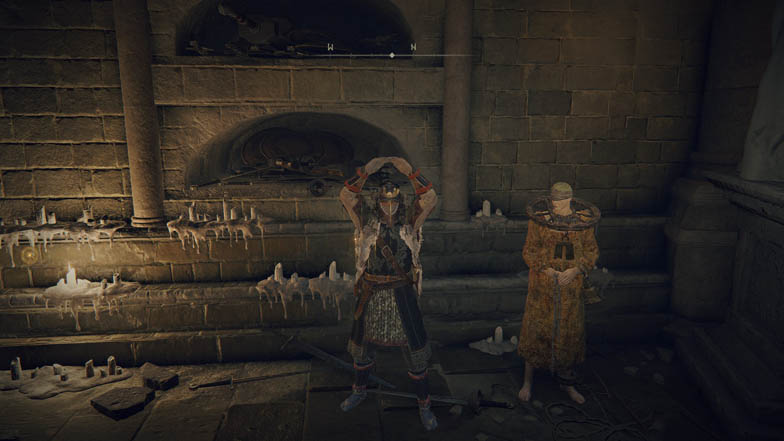
Brother Corhyn sells incantations and can even learn more by giving him prayerbooks found throughout the Lands Between. However, a safer alternative is giving prayerbooks and sorcery scrolls to Miriel over at the Church of Vows in Liurnia of the Lakes.
For now, purchase Flame Sling, Rejection, and Catch Flame if you started as Confessor. Flame Sling gives you a reliable fireball for long-ranged engagements, and Rejection is a niche but useful spell that lets you knock away nearby foes.
Venture to Weeping Peninsula, the area south of Limgrave. Find the Callu Baptismal Church and search for the Flame of Frenzy incantation nearby.
Flame of Frenzy is an AoE spell that deals significant damage. You can even use it point-blank against larger enemies to deal massive damage.
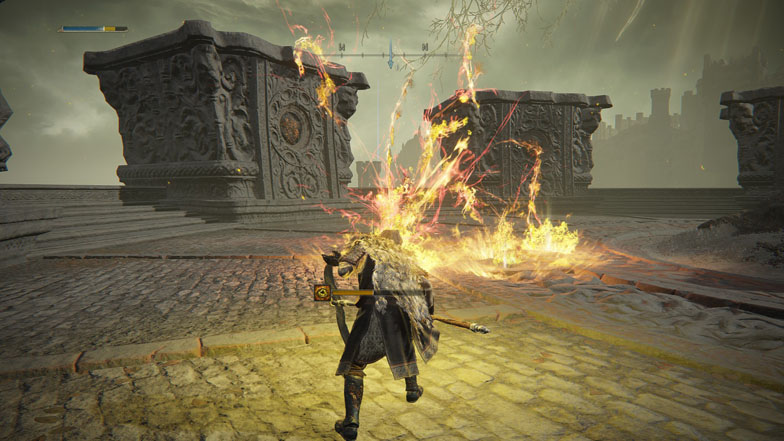
Find the Godskin Prayerbook hidden behind an Imp Statue Seal. The Godskin Prayerbooks lets Corhyn or Miriel sell Black Flame and Black Flame Blade.
Black Flame is similar to Flame Sling, but it uses black fire, which continues to damage enemies for a short period. Like Flame Sling, you can charge it for even more damage.
Black Flame Blade lets you imbue your armament with the black fire effect. Although it is a strong enchantment, it has a very short duration.
Finally, go to the island southeast of Limgrave by going through Coastal Cave. You can buy dragon incantations from the Church of Dragon Communion. In order to properly benefit from dragon spells, you need to also invest in Arcane.
Flame Sling, Black Flame, Catch Flame, and Black Flame Blade will be your viable spells in the early game. They’re still solid and reliable even if you start amassing more powerful spells.
Regarding Faith builds in Elden Ring, you’ll be spoiled with choice. There are many incantations to choose from, and it can be overwhelming for the first time. Here are a few overarching archetypes to help guide what spells to slot:
The Dragon Cultist takes advantage of the many potent lightning spells in Elden Ring. These characters hurl various bolts of electricity toward their foes.
Lightning Spear will be your most reliable incantation for this build. Simple, yet very effective. Most strong lightning spells, like Lansseav’s Glaive, have a long wind-up time, so players need to master timing to reap the rewards.

Players should use the Gravel Stone Seal Sacred Seal as it boosts Dragon Cult incantations. Additionally, the Lightning Scorpion Charm raises lightning attacks at the cost of defense.
Pyromancers use the many flavors of flames in the Lands Between. Even though there are a lot of flame-based spells, Elden Ring gets creative with its applications.
Pyromancers pull their flames from different sources of power. For example, Godslayer Incantations use Black Flame, while madness-inducing yellow flames come from Frenzied Flame.
Fire Giant incantations are expensive and intensive, while Fire Monk incantations are controlled and seek to empower the caster. There are also some fire-based incantations gained from the power of dragons.
Seek out the Fire Scorpion Charm to raise fire attack at the cost of your defense. Use the Giant’s Seal for Giant’s Flame incantations, Frenzied Flame Seal for yellow flame, and the Godslayer’s Seal for black flame spells. The latter is also a solid choice if you use different incantations since it scales very well into the late game.
Paladins draw power from the Erdtree to fortify themselves against their foes. Faith has a ton of utility, restoration, and enhancement incantations that empower a melee-focused playstyle.
Buff yourself with Golden Vow to increase your attack while increasing your resistance with other incantations. Aspect of the Crucible: Horns is an imposing way to close the distance between you and your opponent.
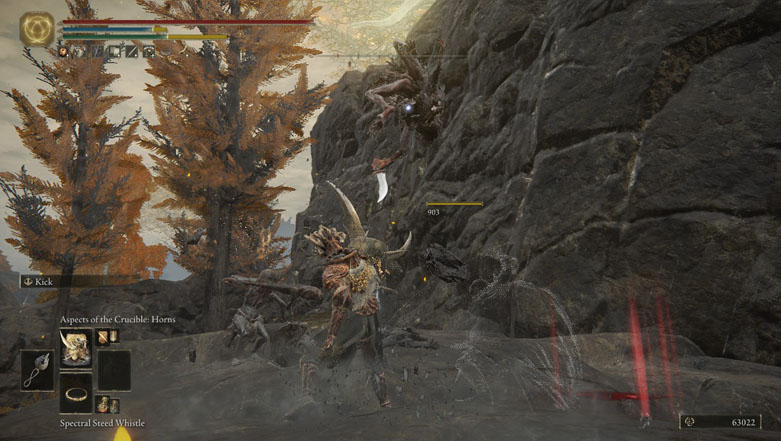
There are many overpowered unique weapon skills for Faith-scaling weapons, like the holy discs from the Halo Scythe or the life-stealing flames of Blasphemous Blade. Since Paladins also distribute points to Strength and Dexterity, it lets them use more weapons.
Paladins can also invest some points into Intelligence to use incantations from the Golden Order. For example, Order’s Blade lets you enchant your weapon with holy damage—particularly good at keeping skeletons down.
Dragonkin are both skilled in Faith and Arcane, allowing them to unleash the full potential of Dragon Incantations. In addition, they can transform and use the powers of defeated dragons, including their roars and breath attacks.
Rotten Breathe or Ekzykes’s Decay is a consistent way to apply scarlet rot. It is a highly devastating status effect that can easily end fights. For instance, scarlet rot is an effortless way to defeat Starcourge Radahn.
As you have points into Arcane, you can quickly apply status effects. All the Blood incantations are sound choices to stack and apply bleed, such as releasing bloodflies using the Swarm of Flies incantation.
Faith Advantages and Disadvantages
The most significant advantage of Faith in Elden Ring is the sheer number of incantations in the game. Aside from offensive spells, Faith is more flexible because of all its utility.
Players who enjoy customizing characters and experimenting with multiple builds will love Faith in Elden Ring. All you’ll need to do is slot new spells, and you’ll experience an entirely new build and playstyle. There’s a lot of fun to have for creative players.
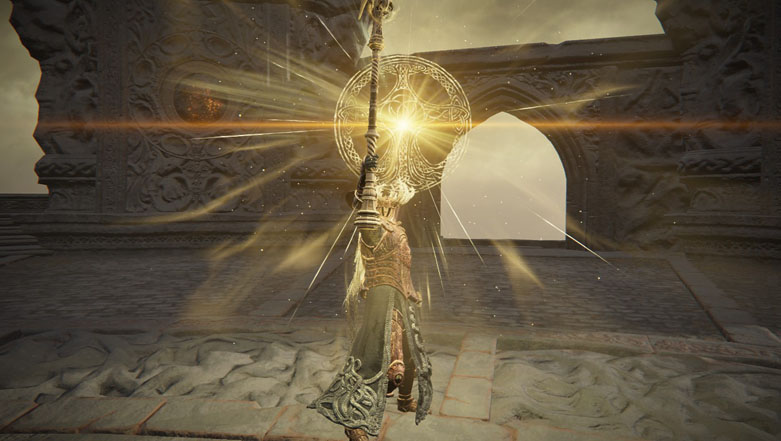
Another advantage of Faith in Elden Ring is that you’ll have control over almost all the elements and status effects. There are many ways to deal lightning and fire damage, as that encompasses most of your damage options.
But you can also inflict poison, scarlet rot, frost, physical, holy, bleed, black flame, madness. You can even deal magic damage using Glintstone Breath and the upgraded variant, Smarag’s Glintstone Breath.
If brute force doesn’t work against a demanding boss, you can instead take advantage of their weaknesses. Faith incantations systematically let you take down an enemy, rewarding to play for an intelligent and observant player.
Faith incantations also shine when it comes to their utility and passive effects. There are incantations that restore health, cure status effects, buff damage, and fortify resistance to specific damage types. Some of these spells are area of effect, extending their useful effects to the caster’s team.
For example, after defeating Greyoll in Dragonbarrow, you can buy Greyoll’s Roar from the Dragon Communion Altar. Channeling Elder Dragon Greyoll’s Roar reduces enemies’ attack power and defense.
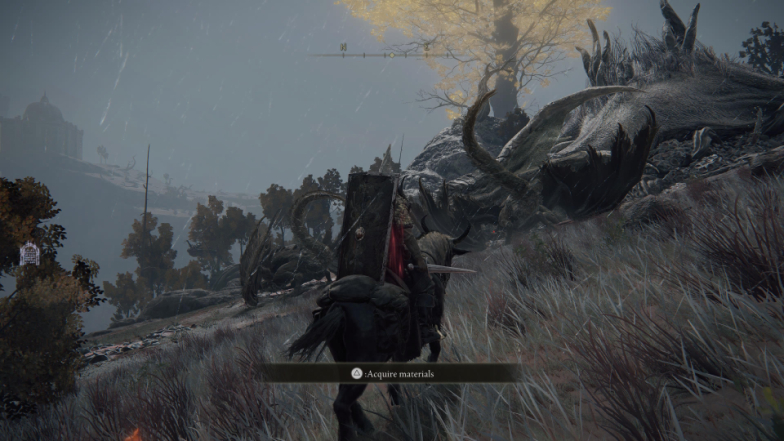
This is very useful to have when playing with other players. When other players are summoned for a boss, their health and damage increase.
These passive incantations supplements a melee playstyle. You can stack these buffs to boost your damage input massively.
Any pure Strength or Dexterity fighter could invest a few points into Faith to reap its benefits. Namely, the Flame, Grant Me Strength incantation raises physical attack and fire-based damage by 20% for only 15 Faith. It also increases stamina regeneration despite not mentioning it in its description.
There are also some offensive incantations that fit a melee warrior. For example, Aspects of the Crucible: Tail executes a sweeping slash with excellent poise damage.
While we’re on the subject of melee playstyles, Faith has an abundance of top-tier weapons. Usually, these weapons have powerful unique weapon arts.
As mentioned previously, Halo Scythe and Blasphemous Blade are standout Faith-scaling weapons. The former’s Miquella’s Ring of Light throws a fast-moving holy projectile with accurate tracking. After casting it, there’s a delay before it flies towards your foe, which tricks enemies into dodging the cast but not the projectile.
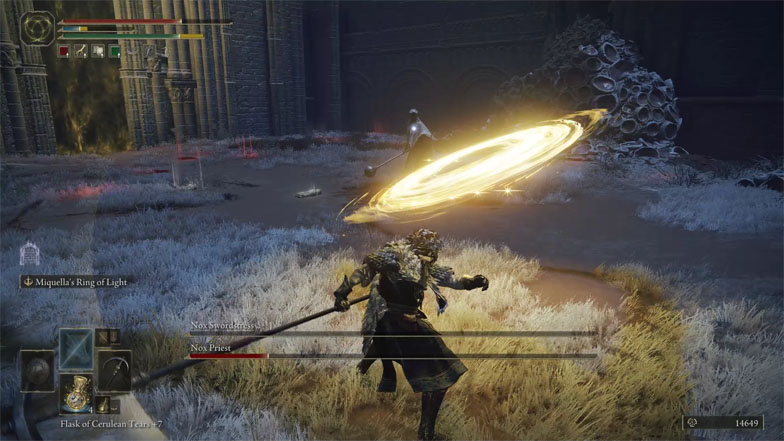
Blasphemous Blade is a greatsword that deals fire damage. Its unique skill, Taker’s Flame, engulfs the blade in flame before plunging it down and releasing a long shockwave of fire.
Taker’s Flame deals significant damage that scales off Faith. Additionally, it also heals the casters for a comfortable amount of HP.
Cipher Pata and Coded Sword are light (the first one is actually weightless) made from holy runes. They both have a unique skill that completely bypasses shields.
Godslayer’s Greatsword is a beautiful colossal sword found at the bottom of the Divine Tower of Caelid. It’s the fastest swinging colossal sword and uses a move set similar to a greatsword.
Its unique weapon skill, the Queen’s Black Flame, coats the blade with god-slaying black flame before delivering a sweeping slash. You can also perform a follow-up attack by pressing the weapon skill input.
The Golden Halberd is a potent armament that you could get early after defeating the first Tree Sentinel. It has an amazing move set, good damage, and a long-range great for keeping enemies at a distance.
But the best part about the weapon is that it has the Golden Vow weapon skill. Golden Vow is a reliable buff that increases the caster’s damage output and physical damage resistance. The incantation version takes a monumental 50 points in Faith to use, so it’s nice to have a pocket-sized version of it.
Finally, Envoy’s Long Horn is a great hammer shaped like an instrument. It deals a tremendous amount of strike damage, perfect for armored enemies like the crystal miners.
Its unique weapon art, Bubble Shower, blows a stream of magic bubbles towards your foe. Admittedly, it looks hilarious and unimposing, but its attack rating absolutely melts bosses.
Don’t forget that there are multiple armament enchantments available for Faith in Elden Ring. Like Bloodflame Blade, which imbues your weapon with raw damage as well as causes steady bleed build-up.
Though it’s more subjective, most incantations are flashy and imposing for the last advantage. If you’re a player who loves a visual treat, there are many stunning incantations to choose from.
Now, for the disadvantages of Faith in Elden Ring. Most of the complaints will be from poor scaling and the challenges of playing a pure Faith caster.
First off, for the many impressive-looking incantations in Elden Ring, a lot of them are impractical for regular content. Either they deal underwhelming damage or take too long to cast—the latter is a prevalent issue with many incantations.
For example, you’ll receive the Gurranq’s Beast Claw after exchanging the eight Deathroot late in the game. The base Beast Claw has a better range and can be charged for more damage.
Aspect of the Crucible: Breathe gives you a throat poach to become a walking flamethrower. However, the damage is subpar for the number of focus points it eats up.
A particularly bad offender is the legendary Flame of the Fell God incantation. The Fire Giant spell releases a slow-moving fireball that eventually explodes.
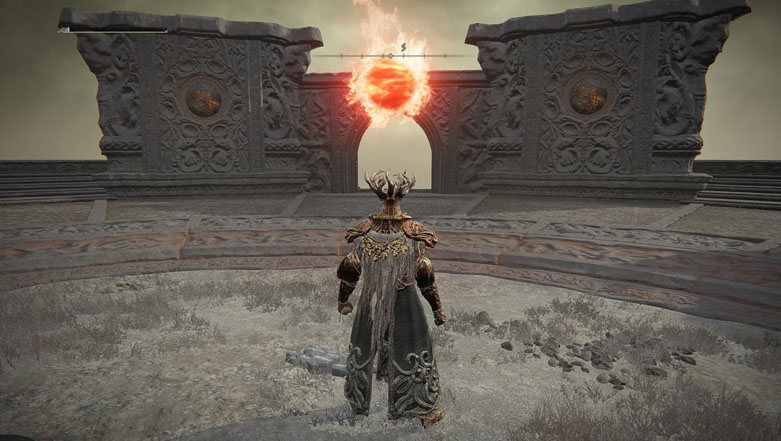
For 41 Faith and 42 FP, after a lengthy cast time, you’ll release one of the slowest moving projectiles with a short distance and a pathetic area of effect. Even if you do hit it, the damage isn’t worth much. It’s pretty much an expensive knockdown if you manage to hit it.
Theodorix’s Magma is also atrocious in both damage and cast time. For 45 FP and an extremely long cast time, you’ll spew a fireball within a short distance.
It also leaves a lingering pool of magma. So while it looks when you pull it off, there are more potent and more practical Dragon incantations that you could get earlier, like Agheel’s Flame or even its base variant, Magma Breath.
One of the most glaring downsides of playing a Faith caster is how much more effort you have to put into using your special incantations. The punishment windows for many bosses in Elden Ring are minuscule; timing and pattern-reading are essential for success.
For example, Lansseax’s Glaive is a viable spell. But there are few situations where you can safely execute this well without tanking a lot of damage.
Another bad example is Scarlet Aeonia, which you get almost in the last segment of the game. Using it lets you float into the air, then fly a short distance and bloom into a scarlet rot-blighted flower.
You are vulnerable the whole time during this drawn-out cast time. Rotten breath is a more reliable and safe way to apply scarlet rot. Scarlet Aeonia is definitely not worth the three slots it demands.
The previously expansive list of incantations starts to narrow down when it comes to practicality and efficiency. What makes everything worst is when you consider the atrocious input reading most enemies have in the game.
Input reading is when enemies read and immediately react to your button inputs. While it was present in past installments, it’s implemented without any subtlety in Elden Ring.
Look at Crucible Knight, for example. He will menacingly walk toward the player in his idle state. However, as soon as you press the button to heal, he’ll quickly perform a chasing lunge.
Another example is the Lion Guardian. These dark and ferocious lions will immediately dodge and jump as soon as you cast a spell. Even if it is a quick incantation, they will evade it at the very first frame of the cast.
One of the reasons why sorcery is good in Elden Ring is that sorcerers have multiple options to deal with these evasive enemies. Sorcerers have the delayed Rock Sling, which tricks enemies into dodging, not to mention the weighty punch and stagger of the spell.
Intelligence builds can also use the Phalanx line of sorceries that will always hit the boss. And the semi-invisible Night Comet and Ambush Shard break the enemy AI for some reason, as they’ll eat the spell without moving out of the way.
For Faith casters in Elden Ring, it truly is a struggle to fight speedy enemies in Elden Ring. Unfortunately, there aren’t many incantations that can reliably hit these enemies.
You can attempt to hit bosses with a long-range incantation or chain casts to catch them off-guard, like the Honed Bolt. You can also try to predict their jump by unlocking the camera and free aiming an area of effect spell, for example, using Fortissax’s Lightning Spear.
The most consistent way to deal with swift enemies is using weapon arts or ashes of war. Again, Halo Scythe is good because of the delayed projectile and superior tracking. You can cast multiple discs in a row, and most will hit.
This disadvantage is a slight inconvenience, but many bosses are resistant to holy damage. Again, you have other elements available for you to use. But, it could hamper your playstyle if you infused your primary weapon with holy damage.
While most madness incantations have good base damage, you can’t proc the status effect on enemies. Madness is a PvP only status effect, so casual players won’t appreciate its full potential.
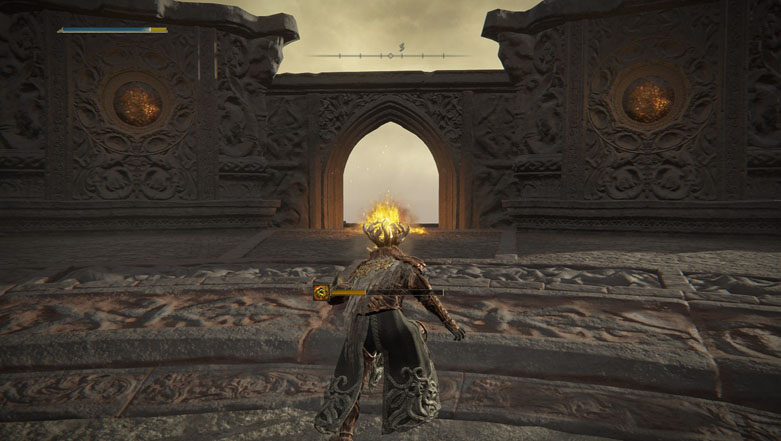
Lastly, incantations can’t keep up with the raw power, consistency, and fluidity of sorceries. Most spells come out fast as a sorcerer while still retaining the caster’s mobility. Meanwhile, many incantations require a lengthy cast time and lock you in place during the animation.
If you want a pure damage-oriented magic playthrough, you’re better off rolling as a sorcerer. But, if you want all the utility and varied options, Faith in Elden Ring has it all for you.
Best Incantantations in Elden Ring
For the last part of this guide, we’ll highlight some of the best incantations in Elden Ring. There will be a healthy mix of all types of Faith-based spells.
Lightning Spear is unconditionally one of the best incantations in Elden Ring. It will be your bread and butter incantation that will carry you throughout the whole game.
Lightning Spear has a quick cast time, great damage, and can be charged for even more damage. In addition, enemies won’t dodge the bolt from a far enough range. It’s so good that you’ll always compare later incantations to the simple efficiency of this one.
Under the right conditions, Honed Bolt will melt the enemy’s health bar. It is incredibly satisfying when you’re left uncontested, like when your spirit summon is drawing aggression away from you.
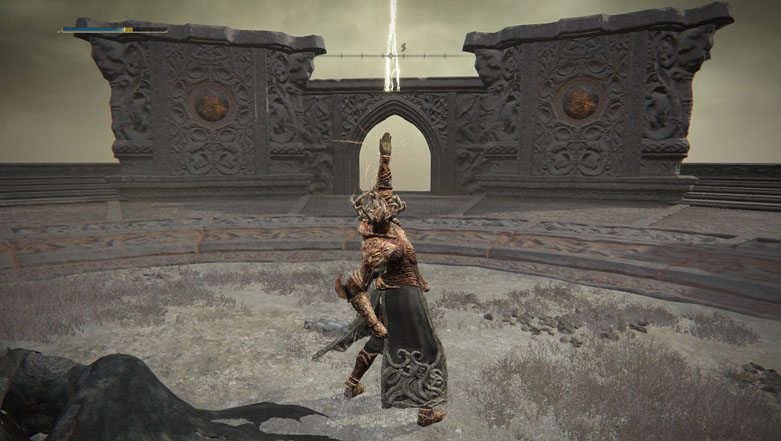
Frozen Lightning Spear and Fortissax’s Lightning Spear both drop potent lightning spears into the ground that also releases a cone of electricity. Both the initial impact and area of effect deal immense damage.
Stone of Gurranq is one of the most fun incantations in Elden Ring. Use it to hurl a giant boulder over a long distance.
The boulder destroys the enemy’s stance, creating consistent staggers. Very effective when fighting dragons.
Giantsflame Take Thee throws one of the biggest fireballs in the game. It can also be charged to boost its damage and massive explosion further.
Against certain enemies, it can naturally combo into itself because of its high chance of knocking down enemies. If you miss the Chaos Bed Vestiges from Dark Souls 3 and wish it was more overpowered, you’ll feel right home wielding this spell.
Flame of Frenzy and Frenzied Burst are two useful madness-inducing incantations in Elden Ring. Flame of Frenzy is a vital area of effect spell, especially since you get it so early in the game.
Frenzied Burst is mostly for sniping threats far away. However, it shines more against other Tarnished in PvP.
Scouring Black Flame scatters black flame in a cone in front of you. It’s handy to catch fast enemies or panic-rolling players.
Pest Threads is a cheap and spammable incantation. It launches many threads and can follow the opponent for quite some time. Decent against regular enemies but really melts large foes.
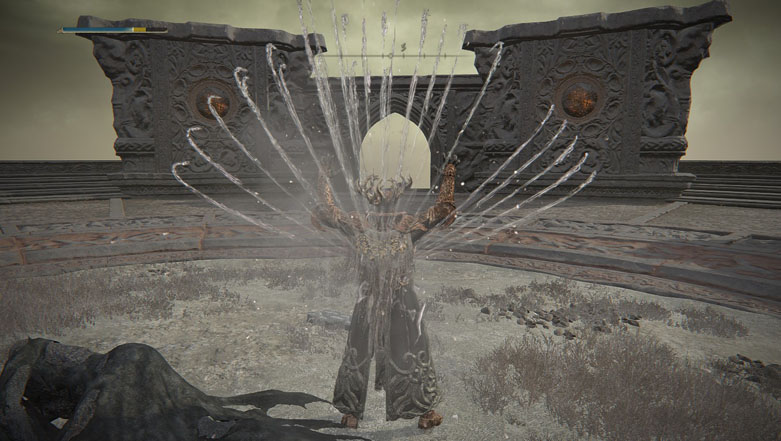
Flame, Grant Me Strength and Golden Vow are your main buffs for your character. They both raise attack damage and physical damage resistance. However, the former increases flame damage and the latter raises spell damage too.
Many of the dragon communion incantations deal massive amounts of damage. As mentioned earlier, Rotten Breath is a consistent way to apply scarlet rot, and can trivialize many bosses in the game.
Smarag’s Glintstone Breath and Borealis’s Mist both deal immense magic damage. The latter also inflicts frostbite build up.
Placidusax’s Ruin is one of the strongest dragon incantations in the game. The first part of the attack is super quick and easy to hit. It does both lightning and fire damage.
Flame, Cleanse Me is a must-have incantation for exploring hazardous areas. This incantation cures scarlet rot and poison build up. Faith users can trivialize poison bogs with their unlimited use of this spell.
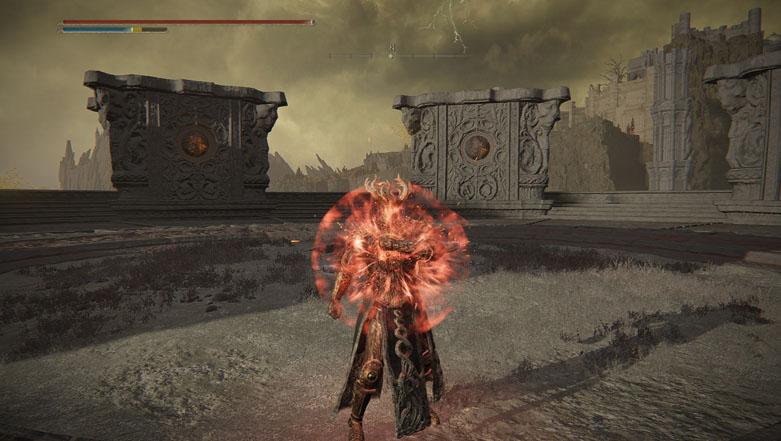
For those who love fighting other players, Bestial Sling is a crucial spell to slot. Using it throws numerous rock shards at your foes, like throwing sand from your pocket.
The incantation comes out instantaneously and deals decent damage. It’s excellent at interrupting your opponent and can even combo into other attacks.
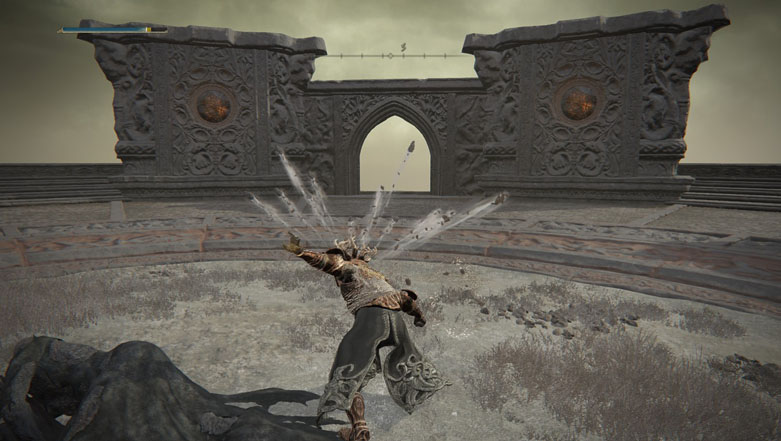
Catch Flame is another important incantation to bring when invading or dueling. Its instantaneous cast time is vital to dealing damage and interrupting attacks reliably.
Finally, Bestial Vitality helps you stay healthy during bouts with other Tarnished. You’ll come to love this spell if you’re a frequent invader, since it compensates for your lack of flasks.
As someone who endured the lackluster implementation of Faith in previous games, I’m pleased with the status of Faith in Elden Ring.
From the early game, you can already hold your own when it comes to offensive spells. There are decent spells that make the early game bearable as you go around and amass a larger collection.
Though sorcery is superior in raw power, Faith more than makes up for it with its utility and options. If you’re hitting a wall in the game, make sure to switch up your spells to adapt to the situation.
You’ll have to work on your timing and knowledge to fully realize the potential of Faith in Elden Ring. But the investment is more than worth it because this is FromSoftware’s best interpretation of the Faith attribute. It is very good and I highly recommend a dedicated Faith playthrough.




